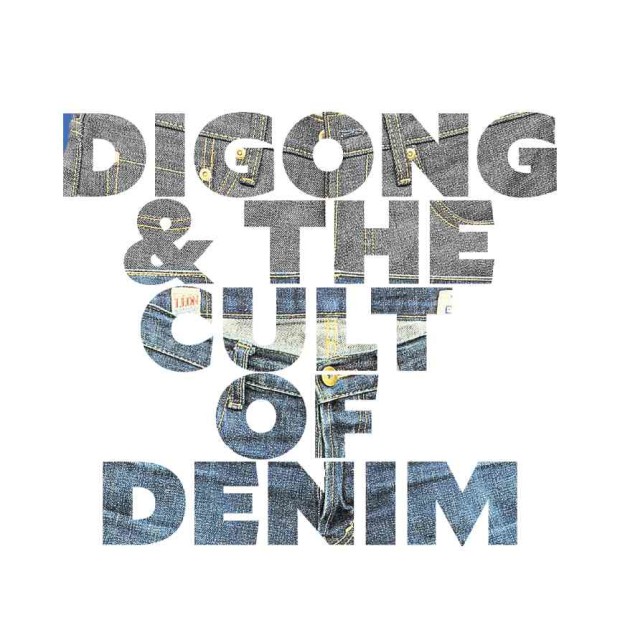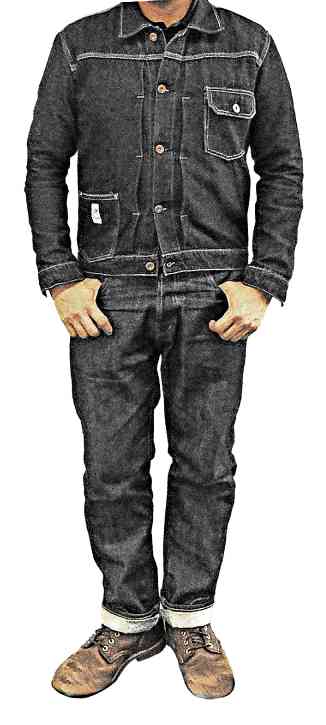Digong and the cult of denim

Former President Joseph Estrada paired his barong with Converse rubber shoes, while former President Fidel V. Ramos rolled up his barong sleeves as if to stress that his was a hands-on presidency.
Mr. Duterte, who once joked that the barong was meant for funerals, decided to give his official look a more youthful character. At the 69th anniversary of the Philippine Air Force in July this year, the President showed up in a barong with rolled-up sleeves and a pair of denims.
The barong and denim ensemble, presidential spokesperson Ernesto Abella said, perfectly suited “a working President.”
The President also wore the unconventional pairing during the presidential debates, and has since made it some sort of uniform even on formal events, like when he welcomed Vice President Leni Robredo during her visit at Malacañang.
Although Mr. Duterte pays closer attention to affairs of the state more than his fashion statement, he just might want to check out Denim Manila or Leon Denim, for a sharp look that fits his swagger.
Article continues after this advertisementThe recent obsession to upgrade something as simple and basic as jeans owes a lot to the Japanese who have always valued perfection over innovation; when they adapt something from the West, they take it to the next level and beyond.
After cars and electronics, they’re doing it with jeans, such that a serious cult of “denimheads” has grown around them. They’re not cheap either: the average cost of a pair of Japanese jeans from a reputable brand hovers around P10,000 to P15,000. Special limited edition jeans can cost way more.
Before you choke on your ramen, we’re not talking about department store jeans here. These are artisanal, heritage brands, made in small quantities from specially woven denim by highly skilled craftsmen, using vintage machinery and paying painstaking attention to every stitch and rivet.
To get schooled on the intricacies of Japanese denim, I went to a “pop-up store,” Denim Manila run by Kai Huang and Erick Ong. The small, guerilla-marketing outfit has been selling limited quantities of premium Japanese jeans since 2013. Through their Facebook page, they’ve been holding periodic pop-up sales in various venues, building up a small but select clientele.
Although most brands produce jeans in the usual modern patterns, many have a “vintage” style that basically aims to reproduce jeans the way they were made immediately after World War II. To do this, they use vintage sewing machines and period-correct hardware such as rivets and buttons. The result is a pair of jeans which wouldn’t look out of place on Marlon Brando in “The Wild One” or James Dean in “Rebel Without A Cause.”
For the full vintage experience, denimheads insist on “raw” or unsanforized denim, which hasn’t been preshrunk. They then resort to various, time-honored methods such as wearing them while they’re wet, or swimming in the ocean while wearing them. Allowing the jeans to dry on their bodies results in a custom fit.
Most denimheads wash their jeans as little as possible, so they’ll develop the most desirable fades. Hardcore denimheads resort to such intricate stratagems as freezing their denims to kill odor-causing bacteria, to avoid having to wash them too much.
In short, it takes a certain mind set to commit to the denimhead lifestyle.
Freud called it “the narcissism of small differences,” how consumers try to make themselves feel unique and individual by seeking out ever more exclusive brands.
Who are these people?
“We were surprised when we were starting out,” recalls Huang. “We thought our clients would be younger, like 20 to 30 years old, so we ordered a lot of the smaller sizes. But there’s really no age profile. We have clients from 20 to 60. These are knowledgeable people who can appreciate the finer details and are willing to pay the premium.”
“You can buy something that’s cheap and throwaway, or you can buy something that gives you pride of ownership,” says regular customer Roy, a silver-haired gent of about 60 who was wearing a pair of Iron Heart Jeans. “You’re not just buying the jeans, you’re buying the story behind it. It’s like customizing a car or a bike, you put your own signature on it and you make it your own.”
The raw denim scene in the Philippines is a relatively recent phenomenon, but there is a growing number of enthusiasts, which may explain the emergence of Leon Denim, the first Filipino brand of artisanal workwear.
Like Denim Manila, Leon started as a passion project for Iver Aldas, Raul Lejano, Jake and Albert Antig, four Makati office workers who bonded over a mutual interest in vintage watches and vintage clothing. In particular they appreciated the level of commitment Japanese artisans brought to producing the perfect pair of jeans.
The idea was to bring to a Filipino brand the same Japanese attention to detail. “It’s meant to be an alternative,” says Lejano, for people who want something better than what they can get at the mall, but who might balk at shelling out P10,000 or more for a Japanese brand, or who prefer to buy local whenever they can.
As of now Leon produces only 30 to 40 pairs of jeans a month, in two styles: their standard fit at a little over P6,000 a pair, and vintage fit 1947 Memphis model which costs a bit more.
Like Denim Manila, Leon Denim sells their products through their Facebook page.
“We attract a more discerning type of customer,” says Lejano. “These are people who want to be different, who like what they wear, and are willing to pay the premium.”
